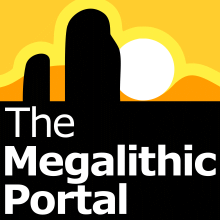A "Slice of Life" interview from Live Science with Metin I. Eren, a Ph.D. candidate in Anthropology (Southern Methodist University.) His areas of expertise include experimental archaeology, Stone Age archaeology, and human evolution. Some of his extensive research is associated with Paleo Crossing:
He is an expert flintknapper: he can accurately replicate prehistoric stone-tool technology. His research currently involves how prehistoric humans colonized unfamiliar landscapes. By focusing upon the Pleistocene colonization of the North American Lower Great Lakes region eleven thousand years ago, he is exploring what sort of behaviors and technology people used to successfully adapt to, and eventually settle into, an uncharted Ice Age landscape. Read his answers to the SceinceLives Questions below.
Name: Metin I. Eren
Age: 27
Institution: Southern Methodist University, Dallas, TX
Field of Study: Human Evolution and Experimental Archaeology
What inspired you to choose this field of study?
Human evolution is the study of us. By studying how we evolved, we can better understand how we fit into nature, and to each other. Having the chance to contribute pieces to the human story through scientific practice was simply an opportunity I could not pass up.
Though I started working on archaeological excavations when I was 16 years old, I realized in college that to get a more complete picture of the past I should learn how to make prehistoric tools. By knowing how to make replica tools, experimental archaeologists can conduct tests that otherwise would not be possible to conduct on real (and priceless!) artifacts, such as how well they work for hunting or butchery, or how durable they are when we try to break them. So, over many years I learned the very difficult craft of "flintknapping," which is the process of flaking stone to make tools. Since stone tools make up 99.9 percent of the artifacts we find during the Stone Age, which is the longest archaeological period in our evolution (2.6 million years!), experimental archaeology can contribute many pieces to the study of human evolution, behavior, and technology.
What was your first scientific experiment as a child?
Though I had been on numerous excavations as a teenager, I did not conduct my first true archaeological "experiment" until my third-year in college. While writing my senior honors thesis it sort of hit me that the method I was using to measure artifacts did not really get at the information I was really interested in. So with the help of my dear friend and colleague Professor Manuel Dominguez-Rodrigo (Complutense University, Spain) I devised an appropriate method which we tested on experimental stone tools.
What is your favorite thing about being a researcher?
The idea of contributing to knowledge has always inspired me. Being a scientific researcher allows me to do that. I also love to travel and explore - archaeology in particular lets me to do that.
What is the most important characteristic a researcher must demonstrate in order to be an effective researcher?
The most important characteristic a researcher can demonstrate is the ability to admit he might be wrong. If we compare science to football, a player shouldn’t be embarrassed to pass the ball to another teammate who may be in better a position to advance the football. In the end, it is the best thing for the team. If research is done honestly and rigorously, there are no "mistakes" in science because a "wrong answer" eventually leads to the correct one - as long as a researcher is willing to change his or her thinking. In other words,
What are the societal benefits of your research?
Studying human evolution and prehistoric archaeology allows us to take a "big picture" look at broad and long-term questions, such as how our species interacts with the environment, or how technology has helped us adapt and survive through time.
Researching humanity's past is important because studying the countless cultures our species adopted through time around the world, one realizes that our species thrives on diversity. Being able to adapt culturally to different circumstances in the natural world has literally helped us survive to the present day. Thus the study of human evolution is in a very real sense the rejection of prejudiced or racist ideologies and attitudes in the modern world.
For more, see http://www.livescience.com/culture/. Thanks to coldrum for the submission of this article.
Something is not right. This message is just to keep things from messing up down the road
